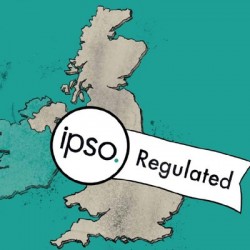 A regional daily was justified in naming a hairdresser later found guilty of deliberately infecting men with HIV before he had been charged by police, the press watchdog has ruled.
A regional daily was justified in naming a hairdresser later found guilty of deliberately infecting men with HIV before he had been charged by police, the press watchdog has ruled.
The Independent Press Standards Organisation found in favour of Brighton daily The Argus following a complaint by the man, who is currently serving life with a minimum term of 12 years after becoming the first person to be sentenced for grievous bodily harm in such circumstances.
The individual concerned was not named by IPSO in its ruling after requesting anonymity, but The Argus had named him in a 2016 story which reported he had been arrested “on suspicion of putting sexual partners at risk of HIV and other sexually transmitted diseases by deliberately tampering with condoms.”
Although the complaint, made in Jun 2016 was not upheld, publication of the adjudication was delayed by IPSO pending the outcome of the case.
The man was jailed last month for offences committed in Brighton and the North-East of England. Although he was named in reports of the trial, IPSO has requested that it is not used in reporting of the adjudication.
In its 2016 story the Argus said that, 18 days after the man’s arrest, Sussex Police and the local council had issued a public health warning asking concerned members of the public to contact local sexual health clinics.
The warning had only identified the suspect by reference to his accent and approximate age, but The Argus decided to release his name because it had “questioned the wisdom” of releasing an HIV-related public health statement which ran the risk of generating public distress as well as implicating every man in the local area who shared the suspect’s accent.
In his complaint to IPSO under Clause 1 (Accuracy) and Clause 2 (Privacy) of the Editors’ Code of Practice, the man said that it was for the police to decide whether the identity of a suspect in a sexual case should be released, adding the force concerned had refused to do so on the basis that naming him would potentially prejudice their investigation because identification would be an issue in any criminal proceedings.
He considered that the “irresponsible and sensationalist journalism” by The Argus was likely to impact the police investigation and, while he accepted he had faced similar charges in Scotland, he said he would have been vilified for no reason if he was not later charged.
He further felt that his identity and HIV status were not in the public domain as a result of those charges because, in accordance with Scottish law, his first appearance at court in Scotland had taken place in private.
The Argus responded that it was “entirely routine” to identify people who had been arrested or charged in connection to criminal offences, especially when doing so might attract witnesses, adding that disclosing his medical condition had been justified given the full circumstances.
The complainant’s name had been supplied by the police in Scotland, where he had been charged with four counts of rape and six of sexual assault, on the basis that it was alleged that he was HIV positive and had deliberately endangered his alleged victims.
While the paper accepted that technically this hearing had been held in private, it did not consider that the information was confidential because there was no “secret justice” in Scotland and, unless specific restrictions were in place, there was no prohibition on reporting names and charges in relation to these initial hearings.
The Argus further considered that there was a “powerful public interest” in the public being made aware of the identity of the suspect, which “very significantly” outweighed any personal claim to privacy that he might have because the public health alert, which had been issued locally, had been issued in a manner that would cause general panic.
The paper’s editor had considered that it was “vitally important” that people who might have had intimate contact with him should be made aware of the allegations that had been made against him so that they could seek testing and medical treatment, if required.
It further stated its coverage with regard to particular details of identification had been moderate and proportionate because his address and photograph were not published, and it had also excluded reference to the charges against him in Scotland so as to avoid prejudicing the local police investigation.
IPSO was satisfied that The Argus had been correct to conclude that information about his medical condition had been placed in the public domain because he had already appeared in court in Scotland, charged with offences which also related to his alleged HIV status, and Police Scotland were confirming his name in relation to those charges.
The Committee emphasised the important role local newspapers play in serving the interests of their communities, and in this instance The Argus could point to the local LGBT community, which had expressed concern that the public health alert had caused unnecessary alarm because it had revealed too little detail about the alleged perpetrator.
The complaint was not upheld, and the full adjudication can be read here.

 Follow HTFP on Twitter
Follow HTFP on Twitter
Bravo! Common sense prevails.
Report this comment